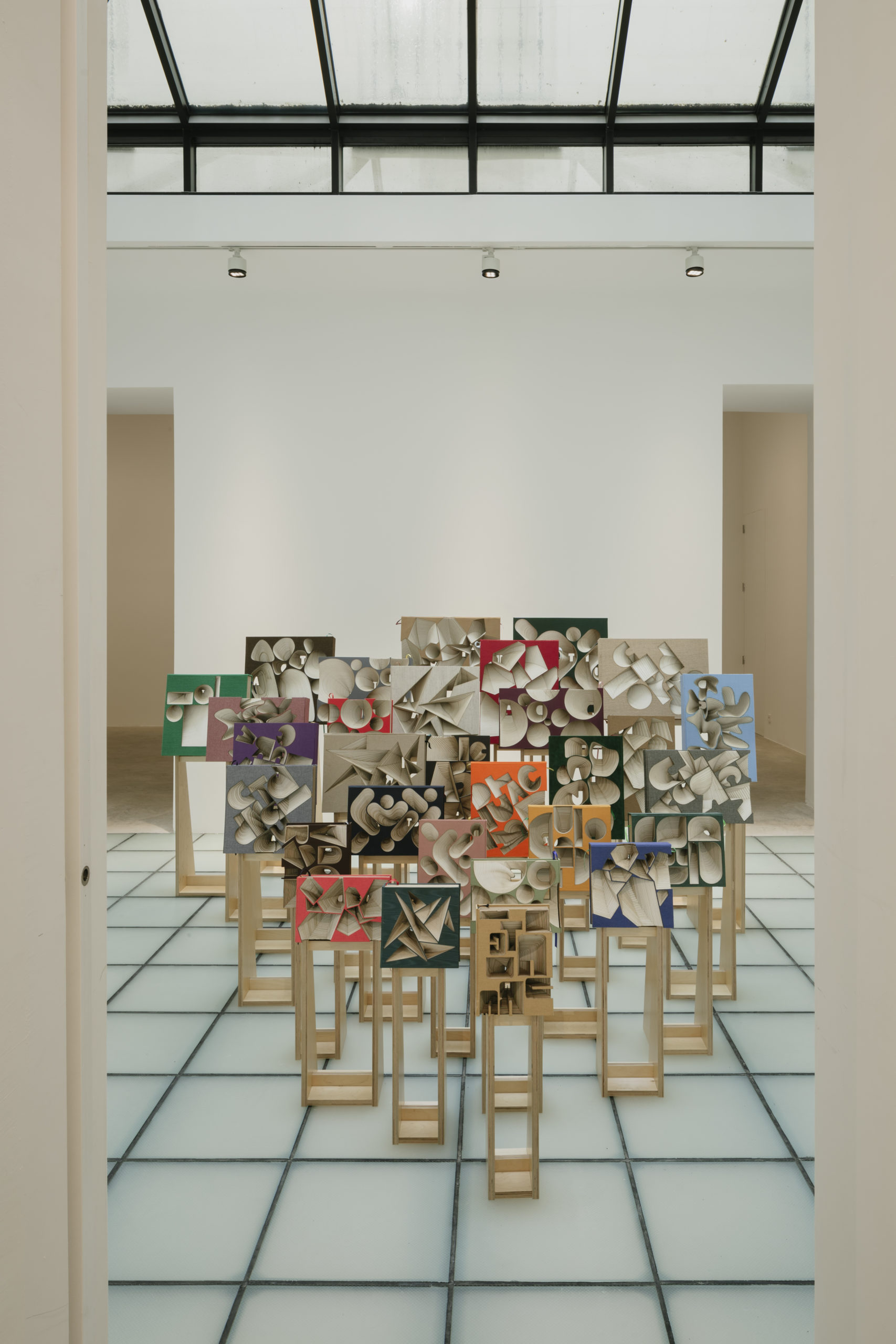Casa Negra, Marco Castillo









08.09 – 15.10.22
Casa negra is a solo exhibition by Cuban artist Marco A. Castillo, founder of the renowned art collective Los Carpinteros. With this exhibition Marco reflects on the impact of being born and living in a dictatorship and all the dynamics and repercussions that this fact has on domestic life and the aesthetic patterns that surround individuals in this reality.
Inspired by Cuban design and interior design of the 1960s, the series Juego de sala, 2022 places us in front of the story of a generation of designers and intellectuals annihilated, the same generation that had the function of changing the aesthetic and functional pattern of Cuba to modulate the life of the so-called “new man” in the early years of the Revolution. Through a group of mahogany sculptures inspired by the Sputnik aesthetic, the artist tells us about the totalitarian systems that, as in a play, are built and legitimized from fictions using the most brilliant minds of his generation, the same ones that, once their task is accomplished, are discarded and expelled from history itself. The choice of this specific movement within Cuban design is not fortuitous and will serve as the guiding thread of the entire exhibition. This group emerges, paradoxically, at the same time as the beginning of the destructuring of the traditional family, the disappearance of the middle class and the greatest migration ever witnessed on the island. Observed from above, these sculptures look like aerial views of the interior of a house, as if the artist wanted to recover that unbroken image of the Cuban family in the collective memory.
On the other hand, a series of books where the word Dictatorship appears over and over again in a compulsive manner occupy an entire room of the gallery. Marco Castillo proposes us to enter into his game where he confronts us with an amalgam of typographies and abstract and disorderly geometric shapes so that we try to decipher the hidden message behind each piece. Rather than referring us directly to the conceptual impact of the word Castillo speaks to us of the way in which power perpetuates itself, from stagings where the human being is not aware of the system of constructions that are shaping his own prison. A system of mirrors where it is impossible to know where fiction begins and ends, but which the artist tries to break with this group of works. In a 180 degree turn all the letters and forms are organized and unveil as a mantra the word dictatorship. The works will be accompanied by a video art that completes the concept of the exhibition and works as the focal point that encloses the horror to which the human being is subjected in this type of system.
In this exhibition we will have the feeling of wandering through a house that is aesthetically beautiful but where each element refers us to a perverse world in which individuals are cornered by the very monsters of power. In Casa negra, Marco Castillo places us in front of the history of a country and could also be thought of as a map to understand the dystopian universe we are facing.